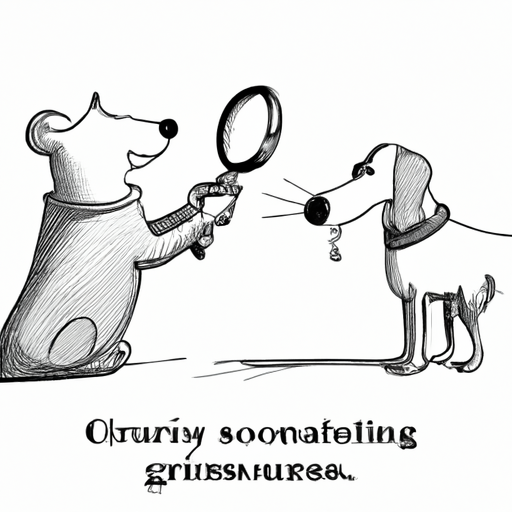Are you a dog owner, a dog lover, or a canine enthusiast? If yes, you’ve probably wondered, why do dogs have a wet nose? It’s an intriguing question, one that has caught the attention of many dog owners and dog lovers alike, and for good reason. It’s a unique feature that sets dogs apart from many other pets. So, let’s delve deeper into this fascinating canine characteristic.
- Key Takeaways
- The main reason why dogs have wet noses is to enhance their sense of smell.
- A dog’s wet nose also helps regulate its body temperature.
- The moisture on a dog’s nose can signal its health status.
- Table of Contents
- The Science Behind a Dog’s Wet Nose
- The Importance of a Dog’s Wet Nose
- Wet Nose as a Health Indicator
- Frequently Asked Questions
The Science Behind a Dog’s Wet Nose
Have you ever wondered about the science behind your dog’s wet nose? This is a fascinating subject that speaks to the complexity of a dog’s anatomy and physiology. Dogs have a special gland that produces a thin layer of mucus on their noses. This mucus serves several key functions, primarily to enhance their sense of smell.
Interestingly, dogs’ noses are one of their most powerful sensory organs. Their sense of smell is estimated to be between 10,000 to 100,000 times more acute than ours. When a dog’s nose is wet, it can pick up and hold onto scent particles in the air more efficiently. This is why tracking dogs are often seen sniffing the ground with their wet noses, as they can detect and follow scents that would be imperceptible to humans.
Furthering our exploration, we come across an interesting article on how dogs’ noses work, which provides detailed insights into the science behind a dog’s incredible sense of smell.
The Importance of a Dog’s Wet Nose
So, why is a wet nose so important for a dog? Beyond the enhanced sense of smell, a dog’s wet nose also plays a crucial role in regulating its body temperature. Dogs don’t sweat like humans do. Instead, they pant and release sweat through their paws and noses. When a dog is overheated, you will often notice its nose becoming wetter as it tries to cool itself down.
Moreover, a dog’s wet nose is a vital tool for communication. Dogs often use their noses to interact with their environment and other dogs. This is a fascinating aspect of canine behavior, beautifully discussed in an article about dog communication.
Wet Nose as a Health Indicator
One of the most intriguing aspects of a dog’s wet nose is its potential to signal the dog’s health status. Generally, a healthy dog will have a cool, wet nose. However, it’s important to note that a dry nose doesn’t necessarily mean a dog is unwell. There are many factors that can cause a dog’s nose to dry out, including sleep, dehydration, and exposure to heat or cold.
However, if your dog’s nose is consistently dry, cracked, or has a change in color or texture, you should consult a vet. This article on dog nose health provides more information about this topic.
Frequently Asked Questions
-
Is a dry nose a sign of sickness in dogs?
A dry nose doesn’t necessarily mean a dog is sick. However, if the dryness persists, or is accompanied by other symptoms, it’s best to consult a vet. -
What should I do if my dog’s nose is dry?
If your dog’s nose is dry, ensure it is well-hydrated and protected from extreme temperatures. If the dryness persists, consult a vet. -
Can I apply anything to my dog’s dry nose?
Before applying anything to your dog’s nose, it’s recommended to consult a vet. Some products may cause more harm than good.
In conclusion, the wet nose of a dog is a fascinating feature that serves several important functions. It’s a testament to the remarkable adaptability and physiology of these wonderful animals. So, the next time you see your dog sniffing around, take a moment to appreciate the science behind that wet nose.



